I’ve had some interesting experiences over the last few years as Lead Healthcare Scientist, and inevitably, some of these experiences were things that went well, and some went not so well. As spring arrives, it makes me reflect on these and what they’ve taught me about leadership.
When I mentor, I often get asked about the difference that happens when you step into more senior leadership roles and how you know when you are ready for that next step. I’ve sometimes found it hard to articulate. In light of my reflections, though, I think I’ve made a list of what I believe are probably the biggest shifts. I’m sure there are others, but these are my big hitters.
It’s no longer about you
There is a freedom that I don’t think I recognised or appreciated in just being responsible for yourself. You can choose who to build relationships with. You can make decisions on what is best for you. You have a certain amount of license to be selfish, as you didn’t sign up to be otherwise. The more senior you become however, the less that this is either true or acceptable.
I’ve experienced what it’s like to be in a leadership space with individuals who are still behaving like they have the independence of being more junior leaders, and the impacts can be pretty catastrophic. They have failed to recognise that they no longer have the freedom to choose not to work with people or to not engage in projects because of personal feelings about who they are being asked to work with, leading to a failure in delivering the collective vision.
When you step up, you no longer have the freedom to judge based on relationships or let that judgement impact the decisions that are being made for the greater whole. You don’t have that kind of freedom anymore as you have moved into a space where the word We, rather than I, should dominate.
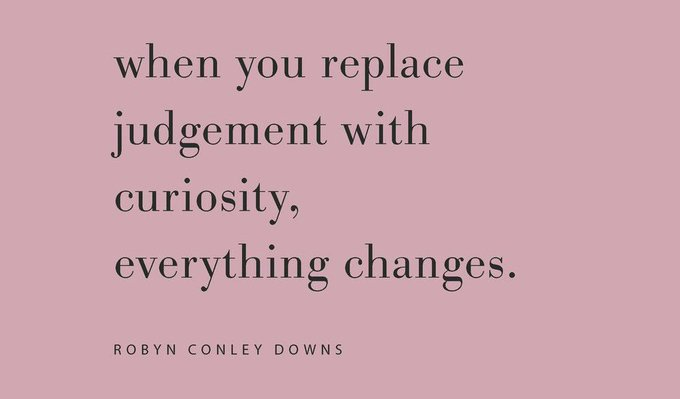
You have to get out of your box
We can have pretty small worlds at work, consisting of one department or cluster of departments. This can feel pretty comfortable as you know the people, you understand the rules, and communication is much more straightforward. The thing is, when you step up, that world shifts, and to succeed, that world needs to become a whole lot bigger. At a minimum, you are likely to be working across the Trust, across professional disciplines, and with much larger numbers of people. In reality, your world is likely to be even larger and require you to engage with and understand systems you are less comfortable with in order to maximise your impact.
The expectation will be that you actively engage and independently work to develop the necessary relationships to build your leadership in this area. You will probably get introduced to people, but the follow-up steps need to be owned by you. Now, sometimes, this isn’t a comfortable process. Not everyone is an extrovert after all, but it is necessary for success, and so it is worth investing development time in these relationship building skills.
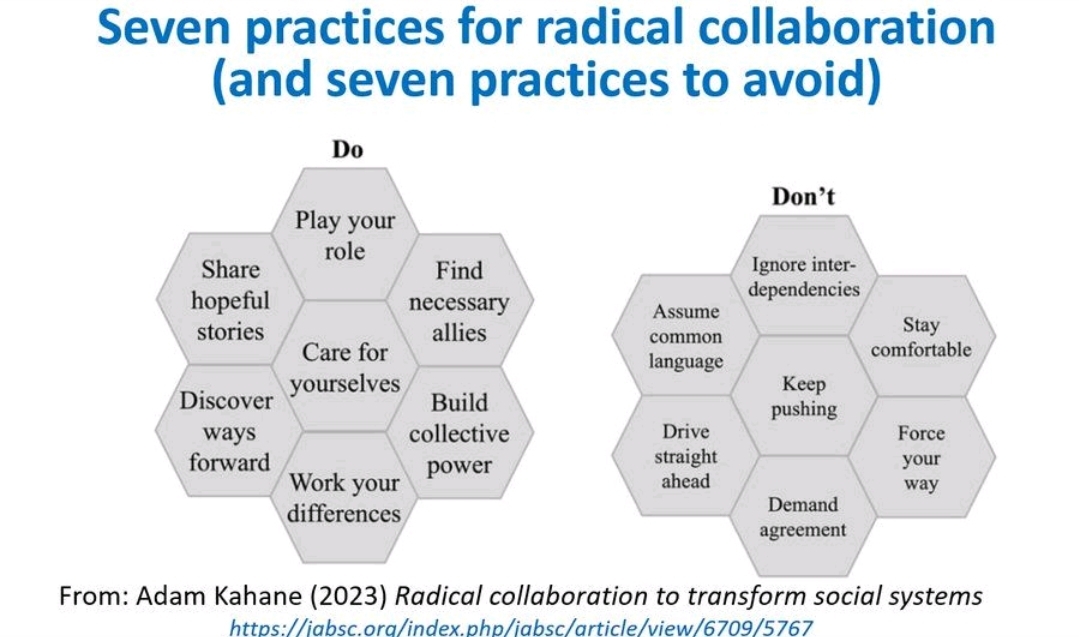
You need to have and be able to sell a vision
Many of us, as individuals, know where we are going. When stepping into leadership, however, that is no longer enough. You can’t just have a vision for yourself anymore. In fact, the vision that you create is no longer even owned by you. You have to switch mindset. You need a strong, clear vision, but it’s no longer about you and your path. It’s about your team, your workforce, your service, and your patients. You need to develop the vision enough to be able to communicate it, and then you have to share it. Sharing also needs to be bi-directional. Your vision now includes others, and so taking on their input is key so it becomes a co-produced direction of travel that can really land and embed to become a reality.
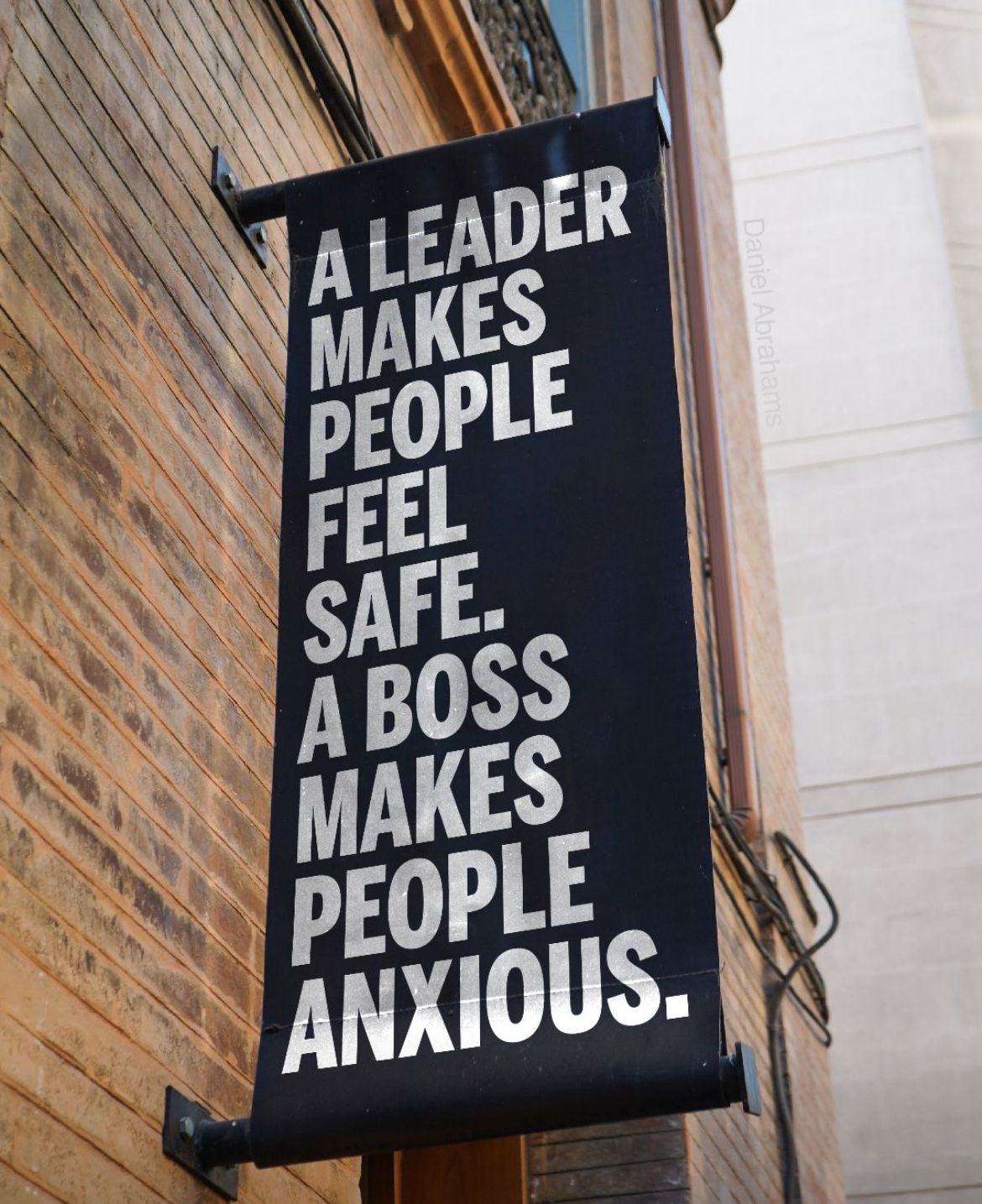
You will never be ‘in control’
Often, people think that as they step into leadership you have both more control and more freedom. This is both true and false. You have more autonomy, but in some ways less choice about how to use it. I’m sure some people in leadership positions do feel in control, possibly because they enjoy a more micro management style of leadership than I do, but the honest truth is that I never feel in control. Now, to be clear, this doesn’t mean that I feel like I have lost control either. It’s just I have accepted that leadership is unpredictable. You can plan all you like but there will be things that come up that mean you have to maintain a flexible approach and the ability to pivot and think on your feet.
I also want to have trust and not control of the staff I lead. I trust them to escalate as needed, I trust them to know their skills and boundaries and where I need to support them in gaining clarity when needed. This is obviously flexible, dependent on level and experience, but for me, development requires supported freedom to make decisions and learn from the process. I always say to my students that I want them to learn all they can so that one day they will become my boss, and I really mean it. It is not my job to be so in control that I clip the wings of those around me. It’s my job to support others to fly.
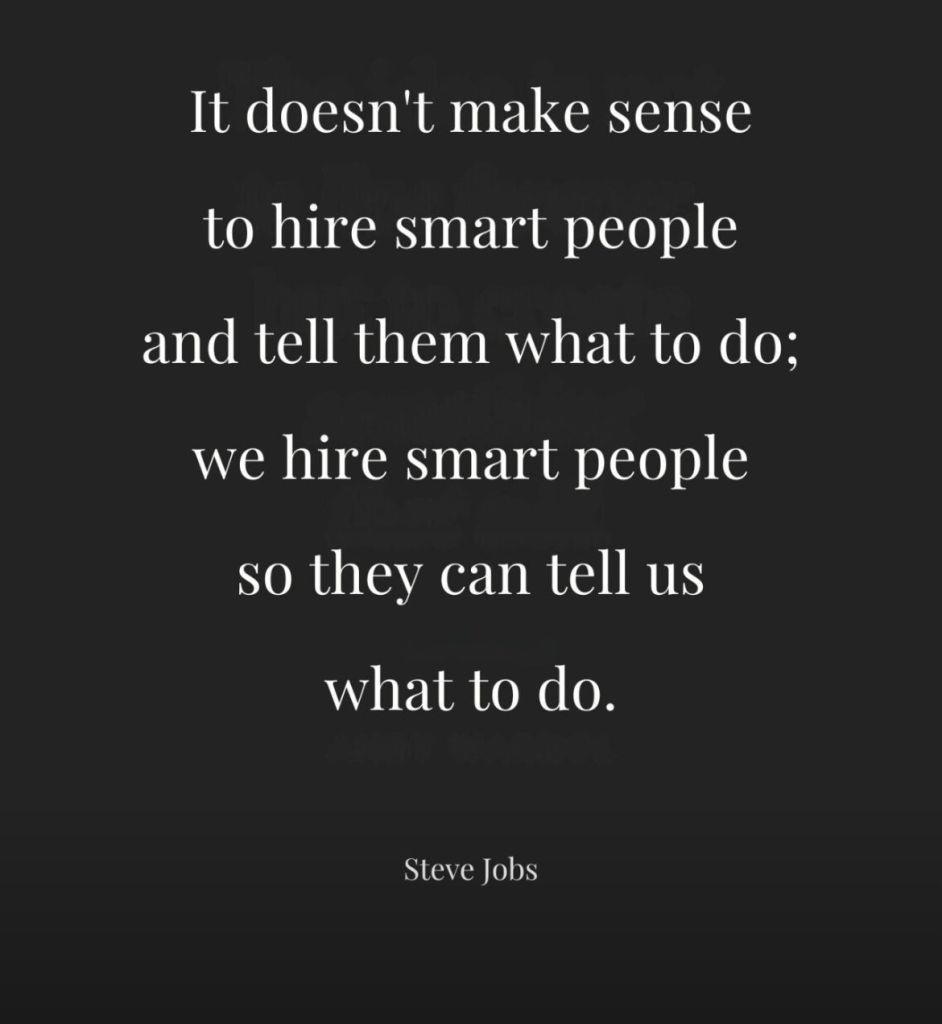
You can’t play favourites
This one should be obvious, but it is sometimes not as simple as it seems. It takes active effort at every stage to try to ensure that opportunities are openly shared and that individuals feel like they are open to them. One of the reasons for this is that when you advertise or offer up these opportunities you’d be shocked by the number of times no one steps forward. There are lots of reasons for this, personal circumstances, lack of individual confidence, issues with how it was disseminated, and it just not being the right moment. This can lead to you actively needing to identify and encourage individuals who you think might be a good fit. That inevitability introduces bias however, as they are likely to be individuals you are more familiar with. I’m not perfect with this but I am conscious of it and therefore am a work in progress.
I’ve also known some senior leaders who liked to pick and choose who they worked with based on comfort and existing relationships. I’m not sure that this is the right way, for the reasons I’ve said, so if you only find yourself working with individuals you find comfortable, I think it’s worth reflecting on why, and if that is the fairest and best approach. You are probably doing yourself, your colleagues and your service a disservice without even realising it.

You will have to make the tough calls
The reason this blog post is on a Monday rather than the normal Friday is that last week was tough. It was a week of tough days and tough calls. One of the things I don’t think I’d truly been able to understand, before I was in the position to make them, is quite how hard making some of those calls is. Whether clinical, scientific or leadership, you are likely to either have a) never encountered the situation before or b) not have all the information. The truth of the matter is you make the best decision you can with the amount with the knowledge you have. You have to make that decision confidently and you have to own it. People are looking at you for direction and guidance. You should always feel able to canvas opinion, seek knowledge and input, but at the end of the day the decision, and therefore the consequences, lie with you. It is not possible, nor is it acceptable, to be a leader who cannot make decisions when needed. Vacillating leads those around you to lose confidence in the decision made. It is also not fair to pass that decision making down the chain, so that those who are more junior are made to own the consequences instead. If you make the step up you have to own all of it, the good and the bad, boldly and in a way that enables others to have the confidence needed to do what they need to do. You need to spend every day striving for gumption.
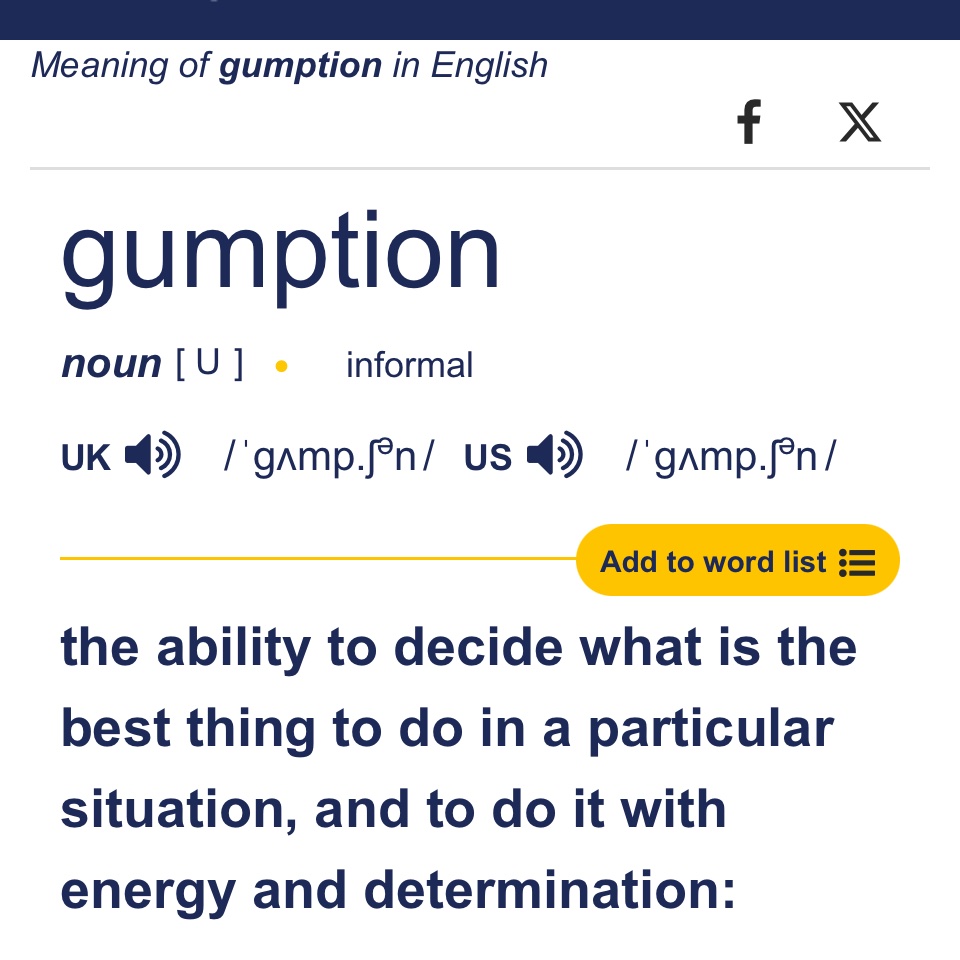
You will need to own your choices, no matter how they turn out
Having said that you need to be confident in your choices, not all of them will turn out the way you hoped. I had a scenario a few years ago where I had to say no. In fact, I have them all the time, but this one sticks with me. I had to say no because otherwise, I was setting the person up to fail in a way that wasn’t wise. There are often times when, as a leader, you have to allow people to fail and grow as it’s a key part of learning. There are circumstances, however, where the scenario is either too high stakes or risks reputational damage where a no is required. Frankly, this experience did not end well for either of us as it resulted in resentment. That’s on me as I obviously failed to communicate the rationale in a way that aided processing. I offered, as is key in these circumstances, other options, other routes to attain the same end, but they didn’t lead to resolution. The thing is, I stand by the action, and I own the outcome, as well as the learning. As I said above, you can’t be liked by everyone, you can only try to be consistent and fair.
If you are going to be the person who says no, or make the big calls, you have to own the consequences of that decision. The same is true for when you say yes. If you are a decision maker, you need to understand that you are in a position to make decisions that impact people and patients and that those decisions should not be made lightly. You also can’t absolve yourself of any subsequent events linked to those decisions. You can only challenge yourself to make them for the right reasons and course correct and learn to be better if you get it wrong.

Sometimes, you just have to take it
Last week. again, was a great example of this one. Things went wrong. They were not under my control. I was, however, the face of the corrective actions required. Stress levels were high as well as emotions, and no matter how unpleasant, individuals needed to be able to express some of those emotions. It is much much better that those individuals expressed how the situation made them feel at me than carry them into their next encounter with a patient or different staff member. I understood the context and driver for the response in a way that the next person might not. It was, therefore, better for me to be the conduit for that emotion. To stand there and hear the concerns and emotions in order to support processing and let them feel heard. Was it pleasant? No. Did it require tea and possibly a quick weep in my office? Yes. Was it the right thing to do? Also, yes. Sometimes, leadership is about allowing others to express unpleasant emotions so they can move past them to a space where they can take the actions needed. I’m not talking about allowing bullying or unacceptable behaviour, but about working with those impacted to move forward in what can be high stakes and very stressful situations. Sometimes being a leader is about doing what is needed to help everyone move forward, both emotionally and in action, so we can all start a new chapter together.
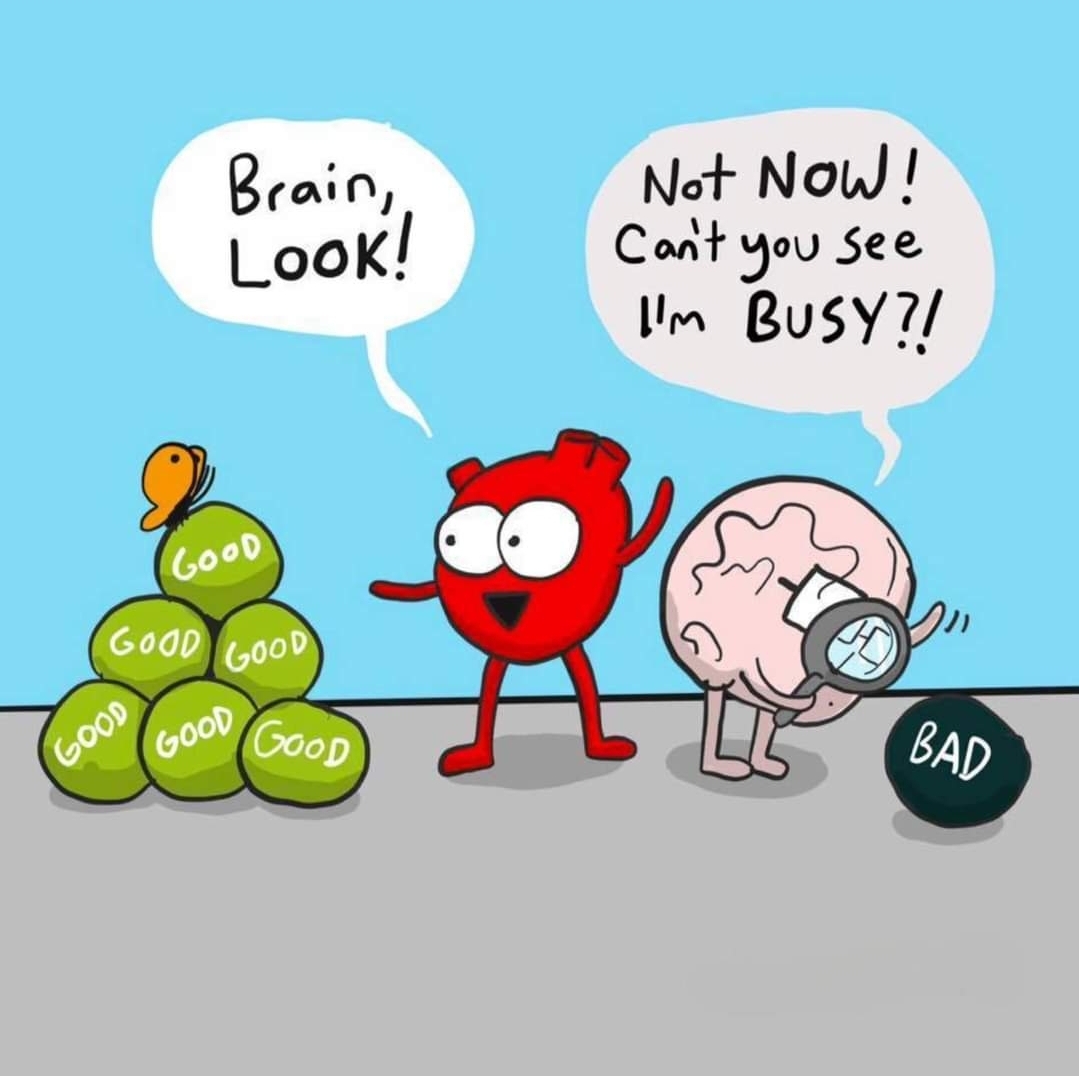
You have to be able to see the jigsaw, not just the pieces
One of the things that can really help with making the hard calls or dealing with the stressful moments is being able to see the whole picture and what that new chapter might look like. This is why having a vision and understanding the wider networks and landscape you are working within is key. You need to be able to take a step back and see the whole jigsaw and know whether the decisions you are making are right across the different levels of context. That can mean making harder choices, but if you can return back to those wider drivers to sense check, it can make life easier.
One minor example of this is the choice I made to always refer to myself when possible as a Healthcare Scientist, not a Clinical Scientist. It’s not that I’m not proud of my professional title. On a national and strategic platform, however, using a single name and description gives bigger numbers and a single voice. It doesn’t require the person trying to navigate that landscape to understand all of the nuances that we experience if we work in the area. So I pivot based on context how I even describe myself, not for my personal benefit but to benefit the profession as a whole. It helps support a single identity and advancement for everyone, rather than any profiling raising I do benefiting just to me as an individual. I strongly advise taking this kind of active reflection across all we do, you never know when a simple change will maximise impact.

You can never be ‘just a passenger’
The final thing, and this can sometimes be hardest for me, is you no longer have the right to disengage. It’s no secret that 2024 has already been quite a challenging year, and I’d be lying if I said that I was in a great head space. My innate reaction to feeling the way I am feeling right now in to hide, to ostrich, to try to protect myself by creating distance. I can not do that. As a leader in challenging times you have to be even more present, even more engaged and involved than you would be otherwise. When circumstances and change are making everyone be unsettled the last thing you can do is become absent or disinterested. You have to step up, you have to be seen, you have to (try to be) the calm at the center of the storm. Personally I can come home and hide in my castle with the safety of Mr Girlymicro for recovery. Once I am out there professionally I need to put all that to one side and throw myself in 100%. You owe too much to your team/s and to your patients to do anything else.
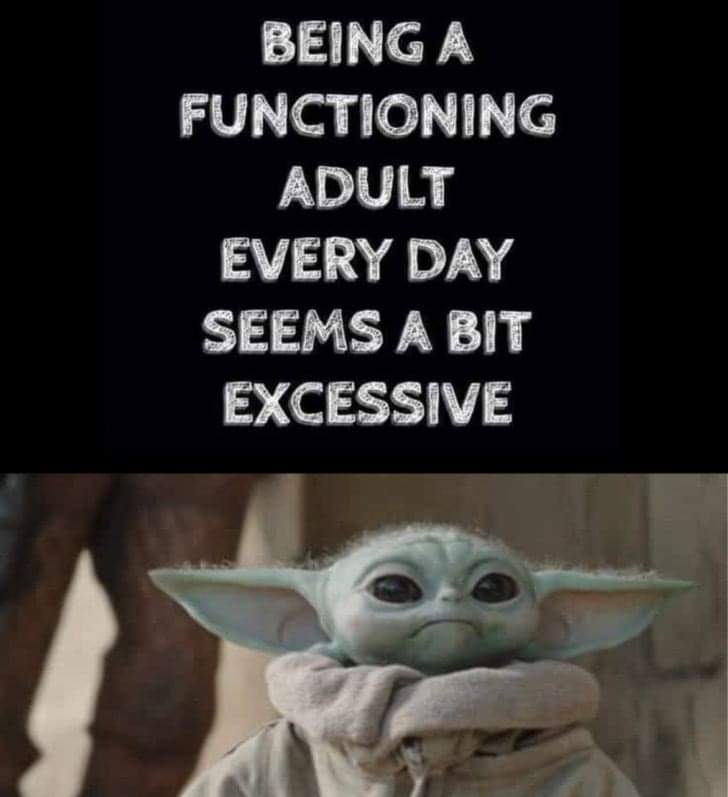
I should say, this posts focuses on the things that can be challenging and the things that may be less obvious from the outside. Being a senior leader though brings so so much joy that all the challenge is more than worth it. Seeing those around you succeed, seeing things become better or change that you envisioned comes to pass, is massively rewarding. There are tough moments but if you are in the right place, with the right people, even the dark times lead to illumination. So take the next step and see what change you can make!
All opinions in this blog are my own
